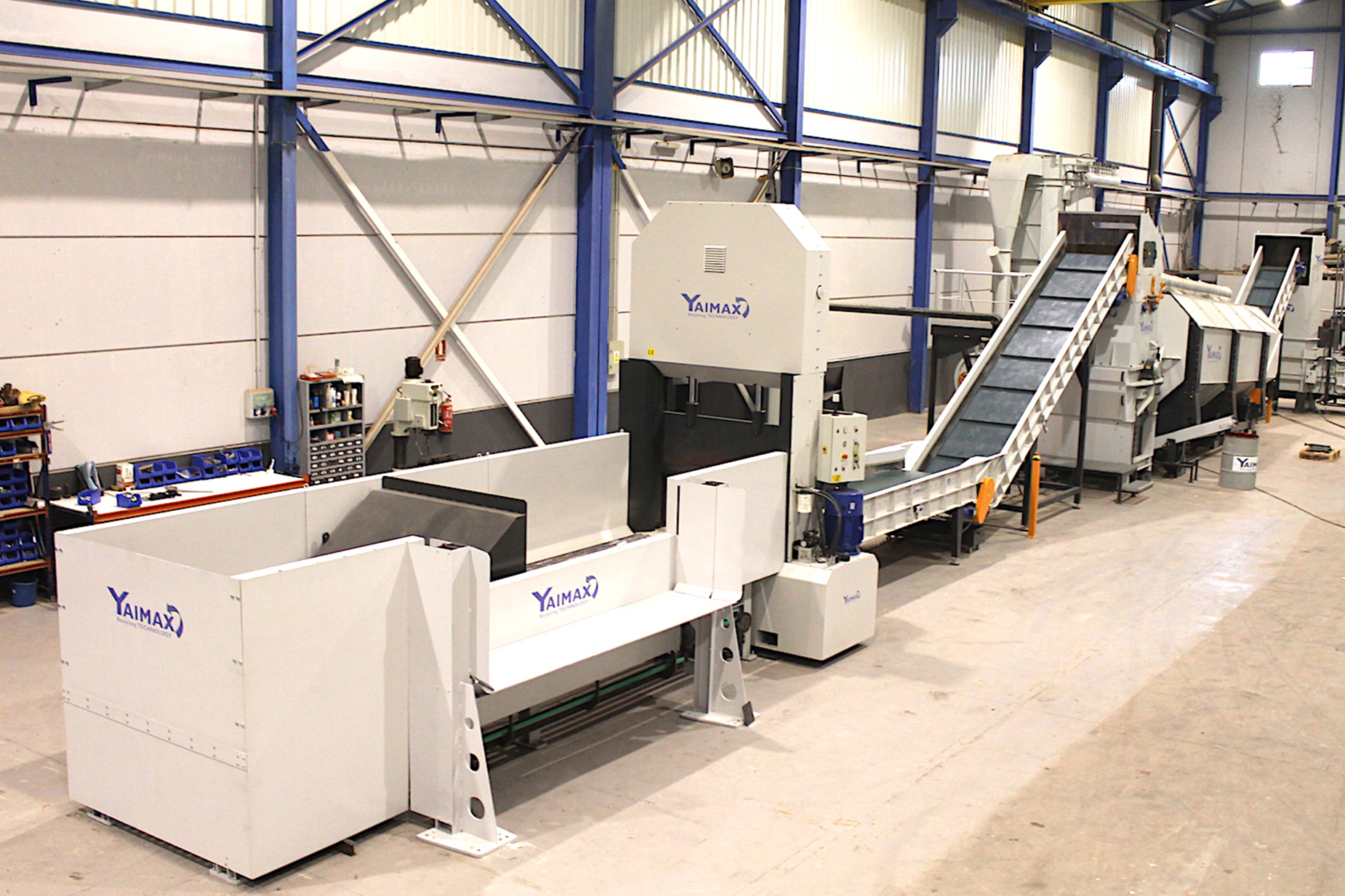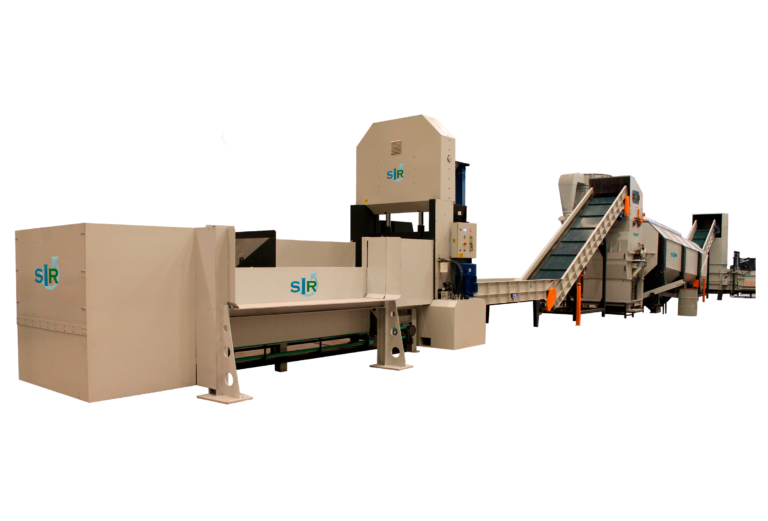Agricultural plastic plays a crucial role in the agro-industrial sector, used in greenhouse covers, mulch films, and other specialized applications. However, at the end of its lifecycle, handling these materials poses a significant challenge due to the accumulation of soil, organic waste, and other contaminants.
This is where dry cleaning plants provide an innovative and efficient solution, enabling the cleaning, separation, and drying of agricultural plastics without relying on intensive water consumption. This approach not only optimizes recycling but also reduces environmental impact and supports the transition to a more circular economy.
What is Dry Cleaning for Agricultural Plastic?
Dry cleaning for agricultural plastic is an advanced process designed to prepare plastic materials, such as agricultural film, pipes, or protective nets, for recycling without extensive water usage. This method employs specialized equipment to carry out three key stages: mechanical pretreatment, contaminant separation, and efficient drying.
The process begins with shredding systems and sorting to break down plastics and facilitate the removal of contaminants such as soil, crop residues, and chemical waste. Next, mechanical separators, like densimetric tables or air cyclones, are used to remove unwanted particles with precision. Finally, thermal or friction drying units ensure the material is entirely free of moisture before reprocessing.
This technical approach significantly reduces water and energy consumption, optimizes the production flow, and ensures agricultural plastics achieve the required quality for reintegration into the value chain. It is a more sustainable and cost-effective alternative to traditional washing methods.

Main Stages of Dry Cleaning for Agricultural Plastic
The dry cleaning process for agricultural plastic is structured into three main stages to ensure the removal of contaminants and optimal preparation of the material for recycling:
- Shredding and Mechanical Pretreatment
In this initial stage, agricultural plastics such as films, meshes, or pipes are shredded to facilitate handling and processing. This step not only reduces the material’s size but also allows for better exposure to the cleaning systems used later. - Contaminant Separation
Using advanced technologies like densimetric separators, air cyclones, and vibrating tables, particles such as soil, stones, crop residues, and other adhered contaminants are removed. This step is crucial to ensure the purity of the plastic material and prevent contamination in subsequent phases. - Friction or Thermal Drying
Drying is carried out using friction systems or specialized thermal equipment to remove residual moisture without the need for water. This method ensures the plastic is completely dry and ready for reprocessing, maximizing recycling efficiency.
Each of these stages is designed to work in synergy, optimizing energy consumption and reducing environmental impact without compromising the quality of the final material. This makes dry cleaning an ideal solution for the recycling of agricultural plastics in large volumes.
Grupo Castillo Solutions for Dry Cleaning Plants
Grupo Castillo, through its specialized companies like Yaimax and SIR – Industrial Recycling Solutions, leads the market in the design, manufacturing, and supply of dry cleaning plants for agricultural plastic recycling. These plants are tailored to meet the specific needs of each client, offering comprehensive solutions ranging from machinery to technical support.
Their catalog features:
- New and Customized Machinery: Cutting-edge equipment designed to maximize efficiency in processing contaminated agricultural plastics.
- Turnkey Installations: Complete projects including design, installation, and commissioning, ensuring optimal results from day one.
- Refurbished Machinery: An economical and sustainable option for companies seeking high-quality technology at a lower cost.
Additionally, Grupo Castillo complements these solutions with a range of services that ensure the continuous operation of the installations:
- Equipment Repair: Technical support to resolve breakdowns and maintain plant operability.
- Preventive and Corrective Maintenance: Programs designed to extend machinery lifespan and prevent downtime.
- Equipment Reconstruction: Upgrading and optimizing existing machinery to enhance performance.
With over a decade of experience in the sector, the plants developed by Grupo Castillo represent a combination of technological innovation, sustainability, and operational efficiency, positioning themselves as a benchmark in the agricultural plastic recycling market.


